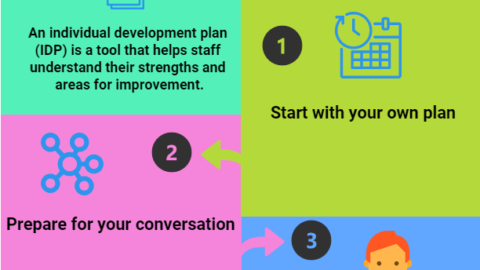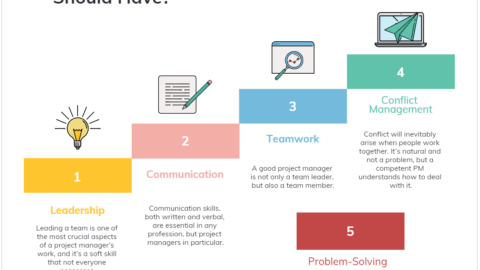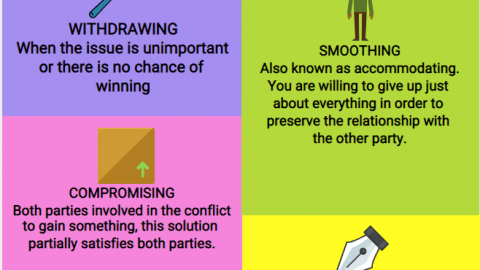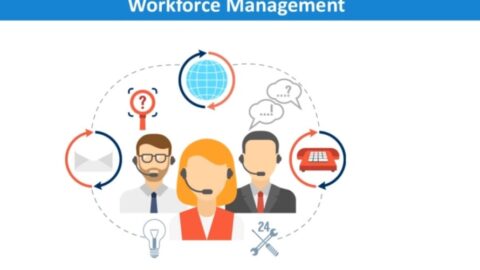10 Ways to Level Up in Human Resources
Human Resources (HR) is a vital department of any organisation. It manages the workforce, ensures compliance with the latest laws and regulations, and creates a workplace culture that inspires innovation and productivity. In today’s fast-paced business world, HR professionals face a constantly changing portfolio of responsibilities. So to succeed in this dynamic field, HR practitioners must keep up with these changes and continuously improve their skills and knowledge. So, how to level up in human resources?
Table of Contents
The role of HR is no longer limited to administrative tasks. It is now a strategic function that significantly contributes to an organisation’s success. Subsequently, HR professionals are expected to be proficient in recruitment, retention, conflict resolution, data analysis and legal compliance, among other things. With such a broad range of responsibilities, it has become more critical than ever to level up your skills and stay ahead of the curve.
This article will explore ten ways to level up in Human Resources. Whether you are a seasoned HR expert looking to sharpen your skills or someone just starting in the field, these strategies will help you become a more proficient and influential HR professional.
1. Continuous Learning and Professional Development
In Human Resources, where the workforce and organisational dynamics constantly change, keeping up-to-date with the latest trends and practices is crucial. Continuous learning involves actively seeking opportunities to acquire new knowledge and skills, adapt to emerging trends, and refine existing competencies. It helps individuals grow personally and ensures that they remain relevant and effective in the ever-changing HR landscape.
On the other hand, professional development involves a structured approach to enhancing one’s capabilities. For instance, you could consider returning to university to pursue a further education in human resource management, such as a Masters course like those offered from UNSW, training programs, certifications, workshops, and conferences. It is a commitment to becoming a better HR practitioner and honing expertise in employment law, recruitment strategies, data analytics, employee engagement, leadership, and ethical decision-making.
Together, continuous learning and professional development empower HR professionals to meet the demands of their roles and proactively contribute to their organisations’ success. By navigating complexities, fostering positive workplace cultures, and driving strategic HR initiatives, Human Resources professionals can play a critical role in shaping the future of their organisations.
2. Master HR Technology to Level up in Human Resources
Mastering HR technology is essential for Human Resources professionals if they are to thrive in the modern workplace.
Human Resources Information Systems (HRIS), Applicant Tracking Systems (ATS), and data analytics tools have revolutionised the way HR functions operate. For instance, HRIS platforms like Workday, SAP SuccessFactors, and Oracle HCM Cloud streamline employee records management, payroll, and workforce analytics. Therefore, proficiency in these systems enables HR professionals to efficiently manage and analyse employee data, leading to informed decision-making and strategic workforce planning.
Similarly, ATS, such as Greenhouse and iCIMS, are instrumental in optimising recruitment processes by automating candidate tracking and communication. So, familiarity with these systems enhances talent acquisition efforts and improves the candidate experience. Furthermore, data analytics tools like Tableau and Power BI enable HR professionals to harness the power of data – providing insights into employee engagement, turnover rates, and performance metrics.
Overall, mastering HR technology boosts productivity and empowers HR to play a more strategic role in the organisation by leveraging data-driven insights to inform business decisions and support the company’s goals.
3. Embrace Diversity and Inclusion
Embracing diversity and inclusion is not simply a trendy catchphrase; it’s an essential obligation for modern Human Resources professionals. In today’s global and interconnected world, workplaces are becoming increasingly diverse, bringing together individuals from varying backgrounds, cultures, genders, races, and abilities.
HR’s responsibility is to create an environment where employees feel valued, respected, and included, regardless of their differences. Doing this entails raising awareness of unconscious bias, actively promoting fair hiring practices, and introducing policies and programs that support diversity and inclusion.
Subsequently, HR professionals should also keep track of and analyse diversity and inclusion metrics to measure progress and identify areas for improvement. By embracing diversity and inclusion, HR ensures compliance with anti-discrimination laws and fosters a workplace where employees can grow, innovation can flourish, and the organisation can gain a competitive edge in the market.
Overall though, it’s not only about compliance; it’s about establishing an inclusive and equitable culture that values differences and utilises each individual’s unique perspectives and abilities within the organisation.

4. Develop Strong Communication Skills
In Human Resources, communication is vital to success, involving daily interactions with employees, management, and external stakeholders. To have strong communication skills, HR professionals must be able to actively listen, communicate clearly in both written and verbal forms, empathise with others, and convey complex HR-related information easily.
Active listening is especially critical in HR because it enables professionals to understand employees’ concerns, attend to their needs, and resolve conflicts more effectively. Additionally, clear and concise communication ensures that HR policies, procedures, and initiatives are effectively communicated to the workforce.
Furthermore, HR professionals often play a critical role in conflict resolution, and their communication skills can significantly impact the outcome of such situations. Whether HR professionals are drafting employee policies, conducting interviews, or presenting HR updates in meetings, honing communication skills is essential to fostering trust, maintaining positive employee relations, and ensuring that HR initiatives align with organisational objectives.
5. Enhance Legal Knowledge to Level up in Human Resources
Human Resources professionals must thoroughly understand labour laws, employment regulations, and compliance requirements at the local, national, and often international levels.
This knowledge is essential for ensuring adherence to the law and minimising potential risks and liabilities. It is particularly crucial when navigating complex issues such as employment discrimination, harassment claims, wage and hour disputes, and employee contracts.
HR practitioners should continuously enhance their legal knowledge through courses, seminars, workshops, and access to legal resources. Staying up-to-date with changes and updates to employment laws is critical, as non-compliance can lead to costly legal disputes, damage to an organisation’s reputation, and even legal action against the organisation.
By enhancing their legal knowledge, HR professionals can make informed decisions, develop compliant HR policies, and effectively manage legal matters within the workplace, ultimately safeguarding employees and the organisation.
6. Strengthen Recruitment and Talent Acquisition
As the job market becomes more competitive, attracting and retaining top talent is crucial for organisations, and HR plays a critical role in accomplishing this goal. HR must develop innovative recruitment strategies, employer branding, and candidate selection processes to achieve this. Recruitment marketing involves creating compelling employer brands, writing attractive job listings, and using different channels to reach potential candidates.
Therefore, HR professionals who master behavioural interviewing can assess candidates’ skills, experiences, and cultural fit more effectively. Building a robust professional network and staying up-to-date with the latest talent acquisition trends are also essential for success.
In today’s digital age, using Applicant Tracking Systems (ATS) to streamline the hiring process and data analytics to measure recruitment effectiveness have become necessary. HR professionals who excel in recruitment and talent acquisition help their organisations secure the best talent and contribute significantly to overall business success by ensuring a highly skilled and motivated workforce.
7. Employee Engagement and Retention
Employee engagement and retention are fundamental concerns for Human Resources professionals, as they have a profound impact on an organisation’s productivity, culture, and long-term success.
HR plays a pivotal role in creating an environment where employees feel motivated, valued, and connected to their work. This involves implementing strategies such as regular employee surveys to assess satisfaction and identify areas for improvement, developing recognition programs to boost morale, and providing professional development opportunities that align with career goals.
Additionally, HR can facilitate mentorship programs, wellness initiatives, and work-life balance policies to enhance employee engagement and well-being. Fostering a culture of continuous learning and growth is integral to retaining top talent, as it not only helps employees feel invested in their careers but also aligns their personal development with the organisation’s objectives.
Overall, HR professionals who excel in employee engagement and retention contribute to a positive workplace culture, reduce turnover costs, and ensure that the organisation maintains a competitive edge in talent acquisition and performance.
8. Leadership and Management Skills to Level up in Human Resources
Leadership and management skills are essential for professionals in the Human Resources field, particularly as they advance in their careers and take on more significant responsibilities.
HR leaders often find themselves in influential positions where they must guide teams, shape organisational culture, and drive strategic initiatives. Leadership training and development programs help HR professionals enhance their ability to inspire, motivate, and lead others effectively.
Change management skills are critical since HR often oversees organisational transitions and transformations. Strong decision-making capabilities are also vital, as HR professionals frequently make critical judgments related to hiring, terminations, policy changes, and conflict resolution.
Developing leadership and management skills enables HR to excel in their current roles and significantly impact the organisation’s overall success. By fostering leadership qualities, HR can shape the direction of the workforce, drive change effectively, and ensure that the Human Resources function aligns with the organisation’s broader goals and vision.
9. Ethics and Integrity
HR professionals are entrusted with sensitive employee information and confidential company data and are responsible for maintaining fair and ethical workplace practices.
Therefore, demonstrating high ethical standards is not just a choice but a necessity in HR. It involves making ethical decisions when faced with complex dilemmas, ensuring that HR policies and practices align with ethical values, and advocating for fairness and transparency in all HR-related processes.
HR professionals must also understand legal and ethical considerations related to employee privacy, data protection, and whistleblowing. Establishing and maintaining a strong code of conduct within the organisation is crucial, and HR plays a central role in setting the ethical tone for the workplace.
By upholding ethics and integrity, HR professionals build employee trust, foster a positive workplace culture, and mitigate legal and reputational risks for the organisation. In a world where ethical breaches can lead to significant consequences, HR’s commitment to ethics and integrity is commendable and essential.
10. Strategic HR Planning
Strategic HR planning is a crucial function within Human Resources that involves aligning HR initiatives with an organisation’s broader strategic goals. HR professionals responsible for strategic planning must understand their company’s industry, competitive landscape, and overall business objectives deeply.
This knowledge helps them develop HR strategies that not only meet the immediate needs of the workforce but also contribute to the organisation’s long-term success. So, by actively participating in strategic planning sessions, HR professionals can ensure that HR initiatives support and enhance the company’s strategic direction. Additionally, metrics and Key Performance Indicators (KPIs) are essential tools for measuring the impact of HR efforts and demonstrating their contribution to the organisation’s bottom line.
Ultimately, strategic HR planning transforms HR from a transactional function to a strategic partner, ensuring that HR practices align with the overarching business strategy and help the organisation achieve its objectives more effectively.
What is the next level after HR coordinator?
The next level after HR Coordinator is typically an HR Generalist or HR Specialist role. These positions involve more in-depth responsibilities in areas such as employee relations, performance management, benefits administration, and talent development. They often require a broader understanding of HR functions and may involve supervisory or team leadership responsibilities.
How do I move up in HR?
To move up in HR, focus on continuous learning, gain diverse HR experience, seek opportunities to take on additional responsibilities, demonstrate strong performance, build relationships, seek mentorship, and pursue relevant certifications or advanced degrees to enhance your qualifications.
Conclusion: Ways to Level up in Human Resources
Human Resources is a dynamic and multifaceted field that requires constant growth and adaptation. So to level up in the field, you should commit to the strategies outlined above.
However, it is important to remember that levelling up in HR is an ongoing journey. Subsequently, as the HR landscape will continue to evolve, staying ahead requires dedication and a commitment to personal and professional growth.
By following the ten strategies outlined above, you can thrive in your current role and contribute significantly to the success and well-being of your organisation and its workforce. So, keep on learning, adapting, and leading with integrity, and you’ll be well on your way to becoming a top-notch HR professional.

Business Developmeny Manager at PAS InfoCom Technologies Ltd. Experienced in project management with a demonstrated history of working in the information technology and services industry.











